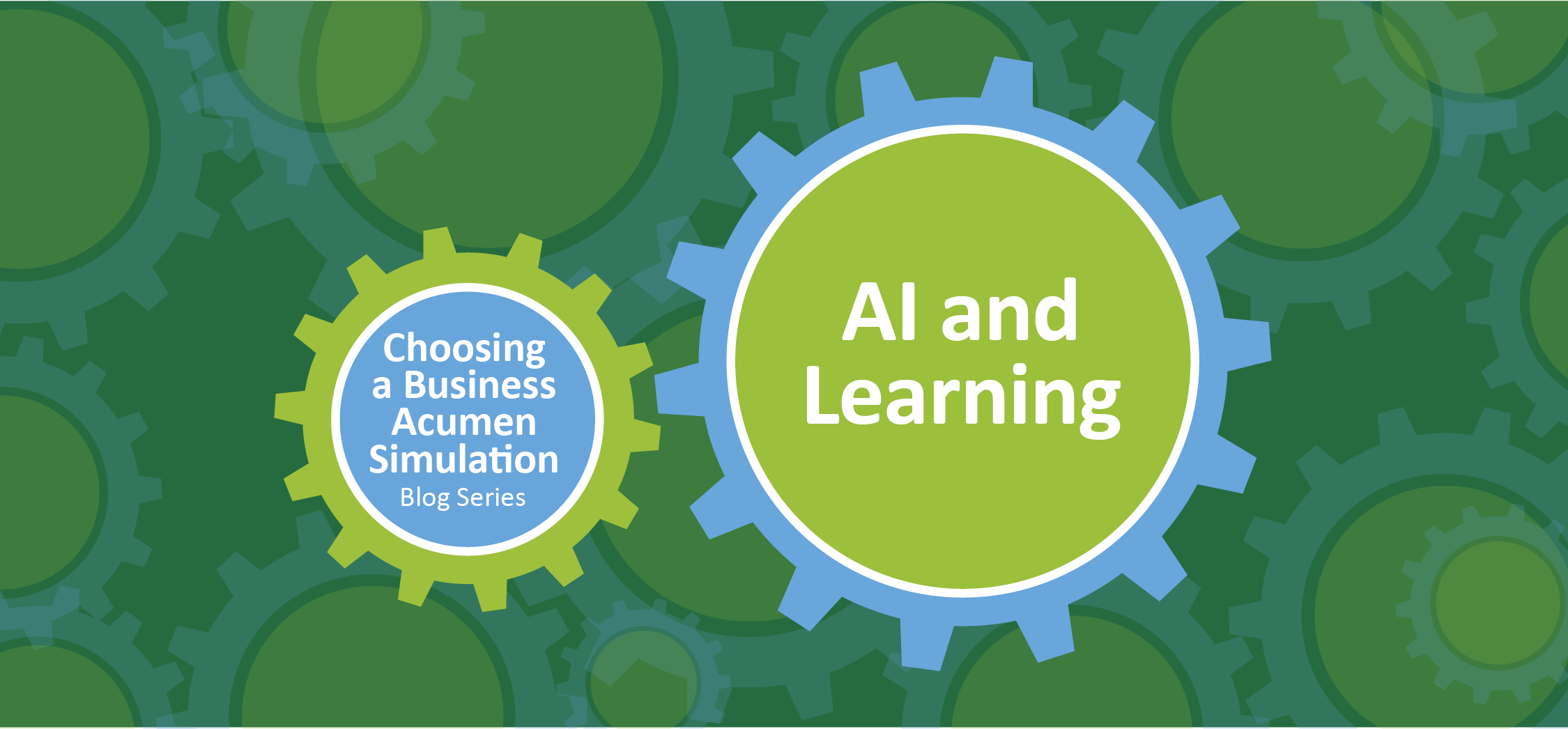13. Why Build Business Thinking Skills Before You Add AI?

Published Date
Choosing the Best Business Acumen Simulation is a comprehensive 17-part guide to evaluating, selecting, and achieving meaningful results with business simulations. In this installment, we explore how to use Artificial Intelligence (AI) wisely—enhancing insight without replacing the critical thinking that true business acumen requires.
Build Business Thinking Skills Before You Bring in AI
Strong business thinking starts with real decisions—not AI shortcuts.
AI can bring speed and convenience to training. From chatbots to predictive analytics, it can surface patterns, visualize trends, and suggest actions. But AI doesn’t understand context or values, and it cannot make judgment calls. Business acumen comes from grappling with real trade-offs and understanding why numbers move, not just seeing that they do.
What’s at Stake
- Foundational Skills. Reading a financial statement, creating a budget, and understanding how cash flow and profit interact are skills that must be learned, not automated.
- Critical Thinking. Knowing what happened isn’t enough. Good business decisions require understanding why it happened—and anticipating what could happen next.
- Human Judgment. AI can surface correlations, but only people can weigh ethics, stakeholder interests, and risk tolerance.
Key Questions to Ask
- How does the simulation balance AI integration with human learning?
- Does the AI deepen understanding—or just hand out answers?
- Are participants generating their own results and insights, or is the machine doing it for them?
- Does the simulation still require people to think?
A Powerful Support, Not a Substitute
Used well, AI can help participants see patterns and relationships they might miss. It can model scenarios and prompt better questions. But the learner must remain the decision-maker. That is the only way real skills develop—and the only way they will stick.
The Bottom Line
AI can be a valuable ally in business training, but it must serve the learner—not replace them. Choose simulations that enhance critical thinking, support ethical judgment, and strengthen core financial skills. The goal isn’t automation. The goal is understanding.




